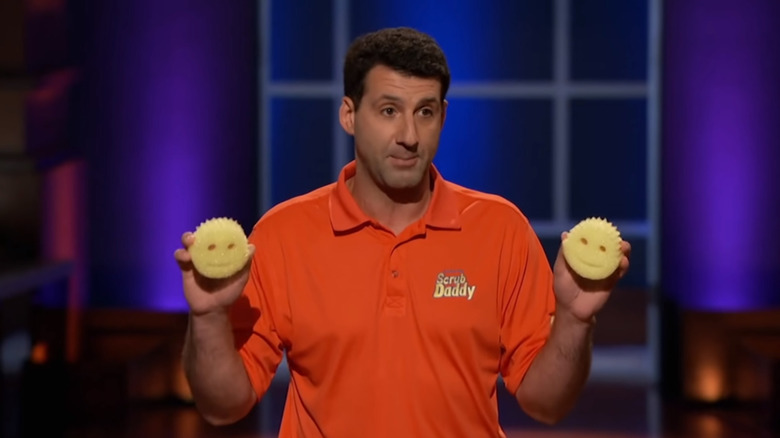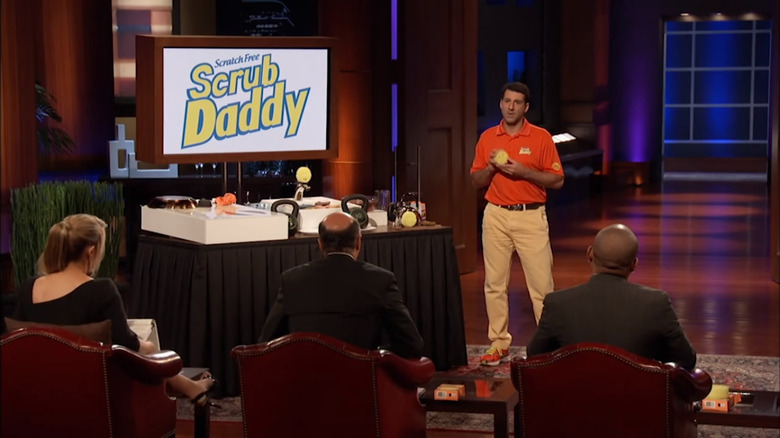Whatever Happened To Scrub Daddy After Shark Tank?
Every fan of "Shark Tank" knows by now that, just because a pitch wins the endorsement of one of the judges, that doesn't by itself guarantee success. In many ways, the drama of entrepreneurs' the pitch, the sharks' negotiations, and the haggling between entrepreneur and judge is just the start. According to the Bureau of Labor Statistics, almost half of all businesses in the United States fail within their first five years, and 65 percent fail within the first decade. In some ways, the drama only starts when the cameras stop rolling.
For as easy at it is for viewers to wonder what happened to some entrepreneurs, they needn't wonder about the Scrub Daddy. On the surface, there's very little that seems particularly unique about a company that makes sponges, other than maybe the little smiley face they're shaped as. But in 2012, investor and "Queen of QVC" Lori Greiner offered inventor and entrepreneur Aaron Krause $200,000 in startup funds in return for a 20 percent stake in the new company. Considering that Greiner is known to close only a fraction of the deals she successfully bids on, this is no mean feat.
More than a decade later, Scrub Daddy is, in terms of revenue, the most successful company in to have ever been pitched on "Shark Tank," worth an estimated $170 million and having sold more than 25 million units. About 7,000 of those units were sold in about seven minutes after its first appearance on QVC after "Shark Tank."
Scrub Daddy was a moderate success even before 'Shark Tank'
Technically, Lori Greiner isn't the Scrub Daddy's first big-money backer. Aaron Krause, who at the time was a car detailer by trade, originally invented what would become the recognizable sponge as a buffing pad after he accidentally damaged a car while trying to wash and wax it. In 2008, the buffers Krause had developed and manufactured were acquired by 3M, who then proceeded to simply sit on them. It was only after he started using the otherwise useless items to do the dishes that he realized he had a lucrative idea at his fingertips.
One of Krause's major selling points for the Scrub Daddy was the fact that, using a specific blend of polymers, it is able to change its texture based on the water's temperature. This meant that the sponge could stay firm for more heavy-duty scrub jobs. This had gotten the attention of buyers even before Krause appeared on "Shark Tank." By that time, the Scrub Daddy had already made handful of appearances on QVC, selling out every time.
When the sharks asked Krause why he needed to come on "Shark Tank" to find investors in the first place, he responded that he needed to buy a manufacturing plant exclusively for Scrub Daddy in order to keep up with demand. With so much already-proven success behind the product, it's little wonder that a bidding war followed among the sharks. The rest, as they see, is history, and Scrub Daddy is part of the fairly impressive list of everyday products that got their start on "Shark Tank."

